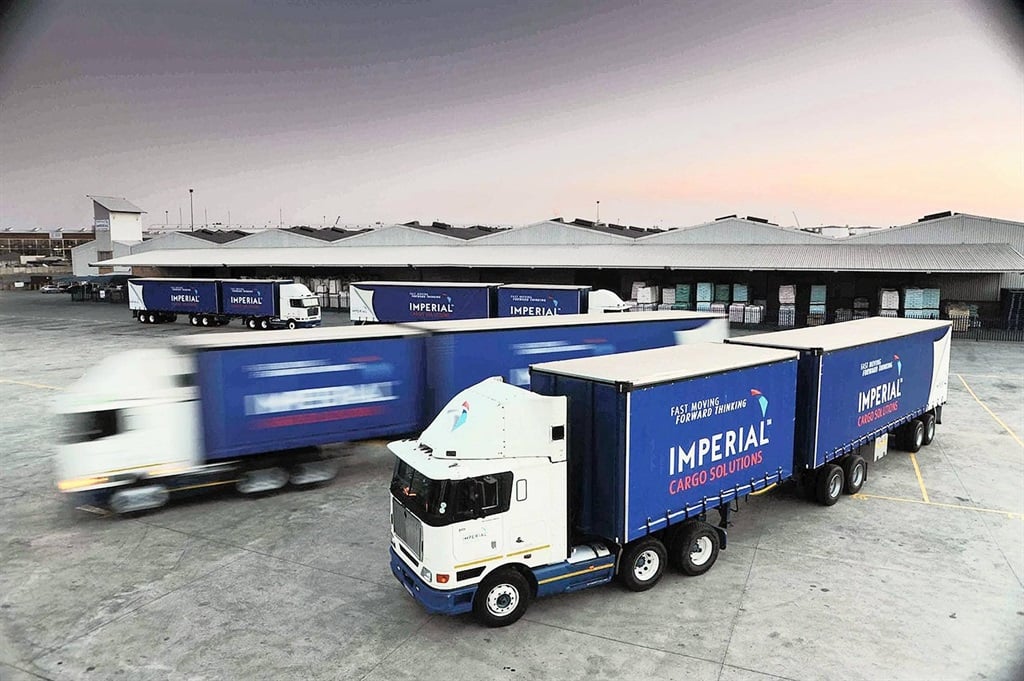
- Imperial logistics as been in business for more than 70 years, since its inception as a Chrysler dealership in Johannesburg.
- The company has begun disposing of its international businesses to focus on the African Market.
- Imperial's most recent international sale was that of its European shipping business in July 2020, for R3.4 billion, it is also working towards disposing of its South American shipping operations.
For almost two years, JSE-listed logistics company Imperial has been restructuring its business and it has now revealed that its ultimate goal is to exit its international business to focus on Africa.
The group - which has been in business for more than 70 years since its inception as a Chrysler dealership in Johannesburg - has grown its footprint across Africa where it operates in 20 markets, in addition to its businesses in South America and Europe.
But that picture is about to change and the company has begun disposing of its international businesses, with its most recent sale being that of its European shipping business in July 2020, for R3.4 billion. It is also working towards disposing of its South American shipping operations.
Imperial provides market access and logistics services across the healthcare, consumer, automotive, chemicals, industrial and commodities industries, with clients such as Tiger Brands, Consol, Woolworths and Sappi.
"We are on a new path, Imperial was a conglomerate, it had a very decentralised way of running the business, we are now becoming a focused logistics business, becoming more integrated and we are focusing our business on Africa," Akoojee told Fin24 on Tuesday.
Akoojee has been at the helm of Imperial since February 2019, after joining the group in 2009, and the group has been working on its restructure over the past 18 months. Imperial released interim results on Tuesday for the six months ended 31 December 2020. Its revenue increased by 15% to R26.36 billion, while its earnings declined by 2% to R2.55 billion. He told shareholders that that the group would become a one-stop shop on the continent and would leverage its network to cross-sell its services, particularly in the consumer and healthcare industries.
"We've expanded our network over many years into the African continent. When I started at Imperial in 2009, we had virtually no network outside South Africa; today, we have [business worth] over $1 billion on the African continent, that is making good returns and margins," Akoojee said.
He explained that the logistics giant was building on its growth in Africa and would continue to expand in its main industries, but would also look to grow in commodities and agriculture. The group is also focusing on e-commerce and announced that it had acquired South African e-commerce, warehousing and distribution company Parcelninja this month. The company was started by Justin Drennan, Ryan Drennan and Terence Murphy in 2013.
Imperial bought its 60% stake in the company this month and Akoojee said it would acquire the rest of it over the course of the next 12 months.
"... we bought it [because] they've got a warehousing distribution capability that is unique to the e-commerce fulfilment market. They've got technology and warehousing systems that do fine picking for a business-to-business model and they go into the informal market," he said.
Akoojee explained that it made more sense to acquire the business together with its people and skills as well as its platform and client base because building a similar business would take too long for Imperial.
Makwe Masilela, chief investment officer at Makwe Fund Managers, lauded Imperial's focus on Africa, saying that the move would pay off, especially under the African Continental Free Trade Area agreement.
"I think it's a good strategy that could work for them, provided that the [Covid-19] vaccines start to work, economies start picking up and, more importantly, we get our African brothers to make sure that they implement that free-trade agreement.
Despite the macroeconomic volatility of the continent, Masilela said it was possible for Imperial to have a success story, citing mobile network provider MTN as an example.
However, portfolio manager and analyst at Aeon Investment Management Zaid Paruk was not as enthused, saying that although Imperial always had a good story to tell, over the past few years, the group seemed to be on a constant strategy shift.
"They keep changing the strategy, first it was 'international is the right way to go', and then they go and buy Palletways [freight business]," he said.
Imperial acquired Palletways in 2016 and it is one of the businesses the group is exiting. Paruk added that over the years, the company had also spent "excessive amounts" building its businesses in developed markets and its strategy to get out of those markets to focus on Africa was a "haphazard strategy shift" that did not seem firm.
He said many South African companies had got "burnt" on the continent and whether Imperial would be able to navigate the regulatory, logistical and currency challenges in Africa, remained to be seen.
